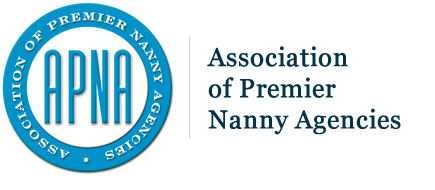You know that paying household employees “on the books” is always the right and smart thing to do. The benefits for families far outweigh any perceived financial savings from avoiding taxes and other obligations.
The ongoing COVID-19 pandemic has brought all of this into crystal-clear focus, and the following examples will help you discuss with your families the importance of paying employees legally, especially now.
Nannies and other household employees joined the millions of Americans seeking unemployment benefits during the pandemic in 2020, which meant families that were paying off the books had to quickly get caught up with their tax responsibilities or face the consequences of non-compliance.
When an employee files for unemployment – even if they are not eligible for benefits because they were paid illegally – their state’s labor agency will follow up with recent employers. If it is found that a family had not been contributing unemployment taxes, they could face fines, penalties, and payment of back taxes with interest.
Or, if a nanny is eligible for paid sick and/or family leave under the Families First Coronavirus Response Act, they could ask for compensation through their state labor agency and would be treated as an unpaid wage claim. Again, the family paying illegally would need to get current on their taxes or pay back wages, damages, fines, and interest.
The pandemic exposed the lack of a safety net for illegally paid household employees. There was no paid sick or family leave to rely on while a nanny was sick or cared for someone who was ill. There were no unemployment benefits (including the extra $600/week under the CARES Act) to get nannies through a prolonged absence from the workforce. And they may not have received stimulus payments that many people in need use to pay bills and rent.
It was an unfortunate wake-up call for many household employees taking pay “off the books.”
Workers’ Compensation and COVID-19
Last fall, California amended its workers’ compensation law to provide a presumption that COVID-19 is a compensable, work-related condition under certain circumstances. Under the bill, if certain employees test positive for COVID-19 within 14 days after working away from their homes at their employers’ direction, the illness will be presumed compensable. Employers that wish to dispute an employee’s presumptively compensable claim for COVID-19 may still present evidence to rebut that presumption.
This could begin a trend in other states and serves to re-emphasize the importance of paying a household employee legally, especially now. If a nanny is being paid illegally in California, contracts COVID-19 and then files a workers’ comp claim, the family would be exposed for not paying on the books.
Legal pay in the “new normal”
Since these financial benefits were out of reach for those paid illegally, we anticipate that even more nannies will require legal pay from families before accepting a job offer.
They now see what can happen if they are paid off the books. During the pandemic, illegally paid nannies are left unprotected and unable to take advantage of financial support from unemployment benefits, paid sick and family leave, and, possibly, stimulus payments, all of which helped relieve financial hardships and reduced their stress in an already anxiety-filled time.
Families may have seen the impact of paying “under the table” firsthand when their nanny became sick or they no longer needed an in-home caregiver during the pandemic and their employee was left unprotected. Some families chose to continue paying their nanny even if they were not working, but that can be unsustainable.
Talking to Your Families About Legal Pay
Explaining payroll and tax laws is often an uncomfortable subject for many agency professionals. Here are a few tips on how to introduce the topic to families in a manner that takes away the anxiety.
When is it best to bring up this topic?
- Establish early on that paying on the books is the expectation
- Reiterate as the hiring process continues and work agreement and wages are finalized
3 talking points about how families benefit from paying on the books
- Reduce risk and exposure to audits and lawsuits
- Attract higher quality candidates and show your employee that you value them as a professional
- Take advantage of tax savings
3 talking points about how nannies benefit from paying on the books
- Verifiable income for credit purposes (obtaining a loan, mortgage, etc)
- Eligible for unemployment when their job comes to an end
- Being able to take advantage of state and federal paid leave, paid sick, and other financial aid programs
From household payroll and tax, to insurance, employee benefits, and HR, you and your families can rely on GTM. We’re the only nanny tax provider that writes workers’ comp policies in-house, we have the most comprehensive benefit offerings to help your families attract and retain the best candidates, and we don’t compete with you to find nannies for families. Contact us at (800) 929-9213 or visit www.gtm.com/household for more information.

